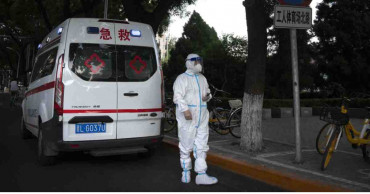WHO: COVID-19 cases mostly drop, except for the Americas
WHO: COVID-19 cases mostly drop, except for the Americas
The number of new coronavirus cases and deaths are still falling globally after peaking in January, the World Health Organization said.
In its latest weekly assessment of the pandemic, the U.N. health agency said there were more than 3.7 million new infections and 9,000 deaths in the last week, drops of 3% and 11% respectively. COVID-19 cases rose in only two regions of the world: the Americas and the Western Pacific. Deaths increased by 30% in the Middle East, but were stable or decreased everywhere else.
WHO said it is tracking all omicron subvariants as “variants of concern.” It noted that countries which had a significant wave of disease caused by the omicron subvariant BA.2 appeared to be less affected by other subvariants like BA.4 and BA.5, which were responsible for the latest surge of disease in South Africa.
Read: Global Covid cases near 530 million
Salim Abdool Karim, an infectious diseases expert at the University of KwaZulu-Natal, said it appeared that South Africa had passed its most recent wave of COVID-19 caused by the BA.4 and BA.5 subvariants; the country has been on the forefront of the pandemic since first detecting the omicron variant last November.
Karim predicted that another mutated version of omicron might emerge in June, explaining that the large number of mutations in the variant meant there were more opportunities for it to evolve.
Read: Davos climate focus: Can ‘going green’ mean oil and gas?
Meanwhile in Beijing, authorities in the Chinese capital ordered more workers and students to stay home and implemented additional mass testing Monday as cases of COVID-19 continue to rise. Numerous residential compounds in the city have restricted movement in and out, although lockdown conditions remain far less severe than in Shanghai, where millions of citizens have been under varying degrees of lockdown for two months.
China is vowing to stick to a “zero-COVID” policy despite the fact that the WHO describes the policy as “unsustainable,” given the infectious nature of omicron and its subvariants.
3 years ago

